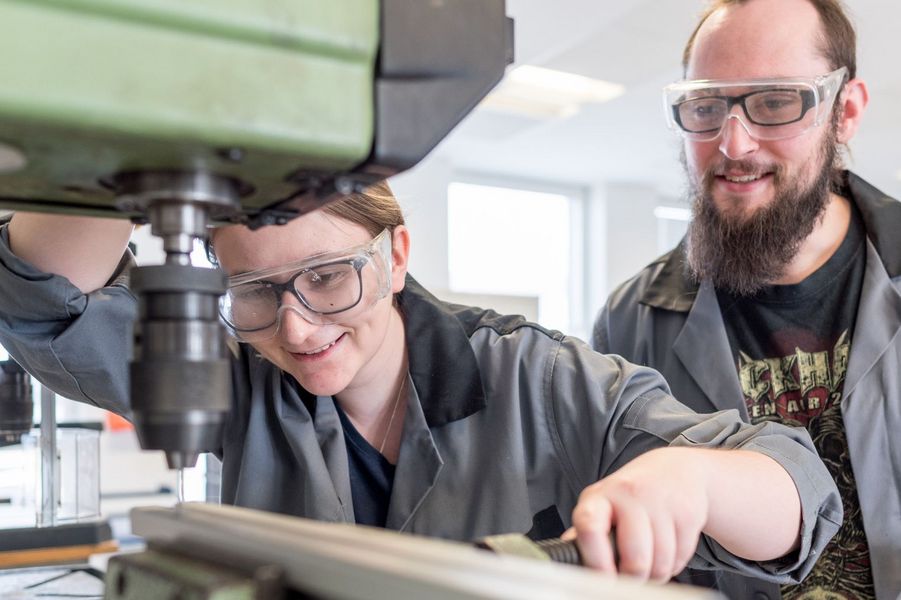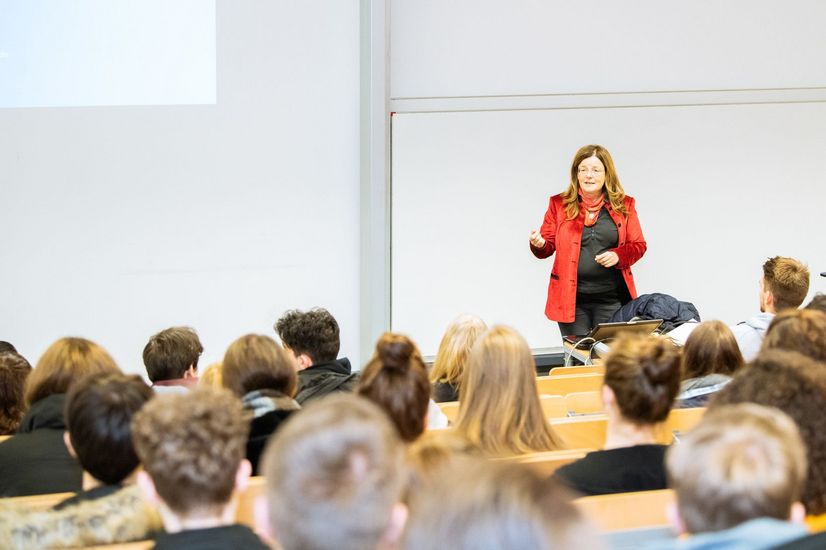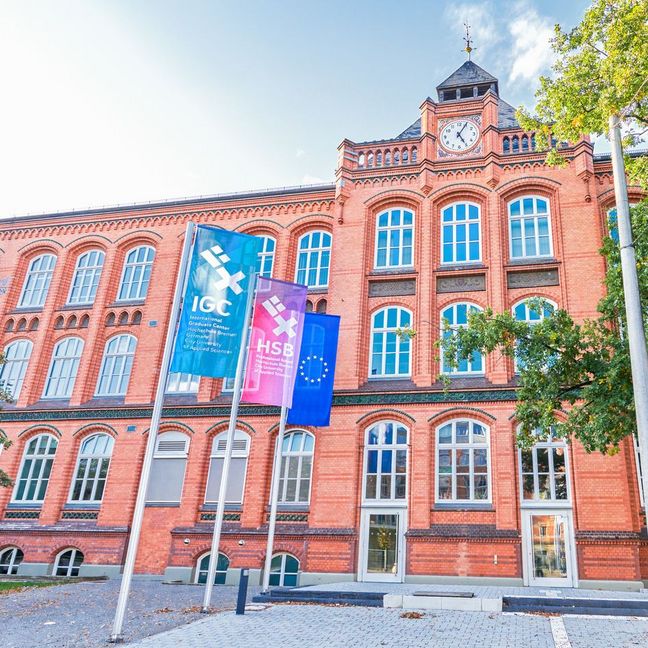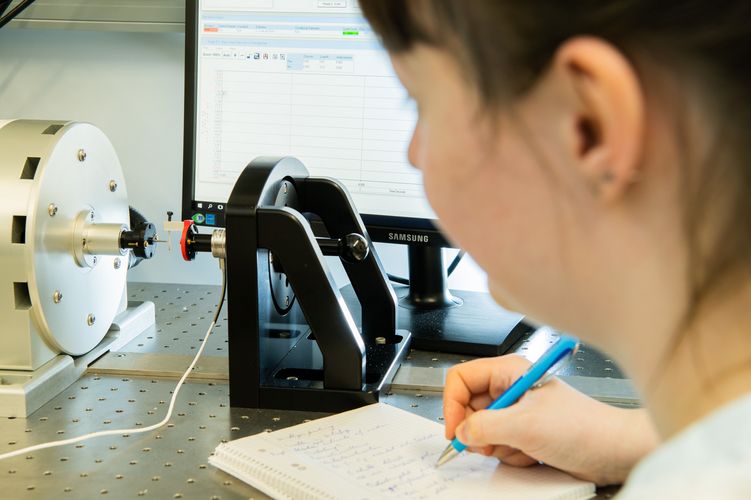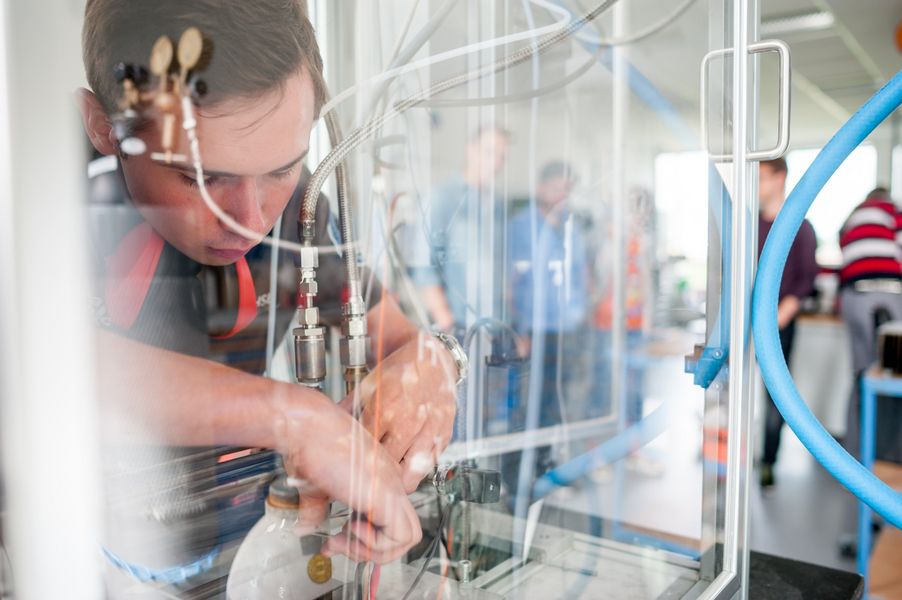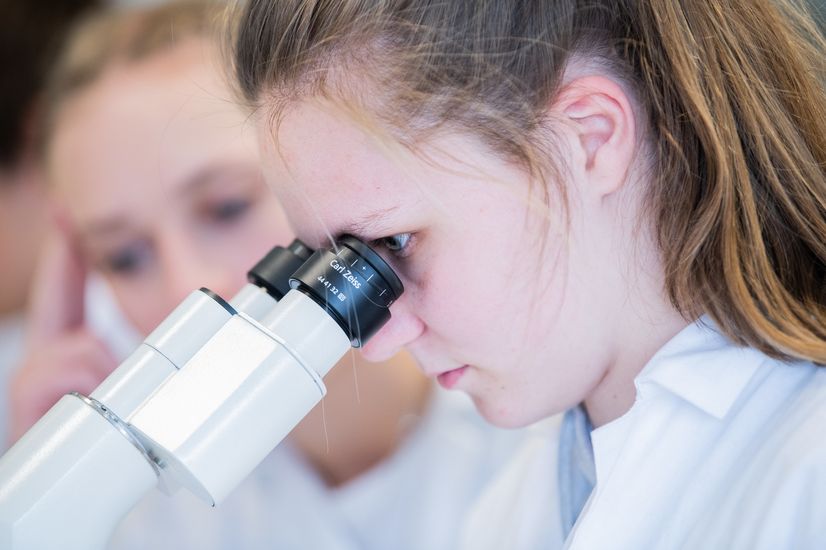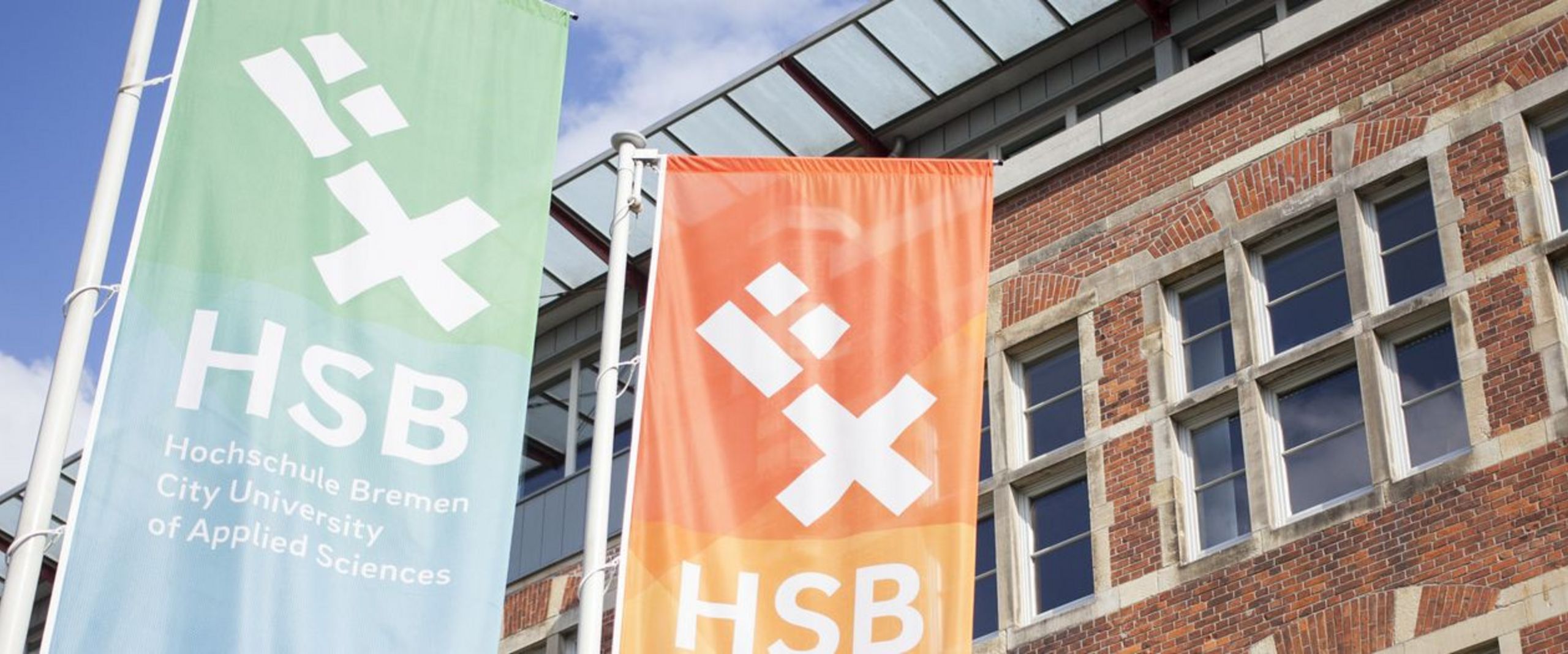
HSB
Some 50 years after they were founded as institutions of education and research, polytechnics – or universities of applied sciences, as they are commonly referred to today – have become an indispensable part of the science and innovation system in Germany.
No one could have foreseen this successful development in 1970 when the originally independent polytechnics were established in Bremen or in 1982 when they merged to form today's Hochschule Bremen – City University of Applied Sciences. In the meantime, HSB has become the second-largest scientific institution in the federal state. As a university of applied sciences with both practice-based and future-oriented teaching and research, as well as its reputation for internationality, it is considered an indispensable location factor for the region. HSB graduates ensure a reliable supply of highly trained specialists in all important areas of society. The wide-ranging research activities take place in close cooperation with companies and other scientific institutions.
With its diverse profile, HSB is oriented towards the current challenges facing society and the economy, which run as cross-cutting themes through studies and teaching. These include:
The almost 9,000 students enrolled in HSB’s five faculties can currently choose from about 70 predominantly international bachelor's and master's degree programmes. HSB programmes are interdisciplinary, the individual modules resulting from practical and subject-specific cooperation within and between the faculties.
The spectrum of subject content covers the natural and engineering sciences, economics and the social sciences. Interdisciplinary teaching and research fields focusing on global challenges such as sustainability, artificial intelligence, health, ecology, urban development, globalisation, and new forms of work or mobility are continuously integrated into the individual programmes and accordingly further developed.
Following a procedure lasting around two years, HSB was granted system accreditation in May 2019. This is formal confirmation that our system of internal quality management permanently ensures the fact that our degree programmes maintain the highest quality standards.
faculties
bachelor's and master's degree programmes
students
For 50 years, HSB, the second-largest academic institution in the state of Bremen, has been making a purposeful, demand-driven contribution to securing the availability of highly trained specialists and promoting innovation in Bremen's economy, administration and civil society. With its nationwide acclaimed profile (practical orientation + internationality + lifelong learning) that is unique in the state of Bremen and the Northwest of Germany, it thus makes a substantial contribution to the political goals of location development.
Being a university of applied sciences, HSB has always sought close cooperation with the business community. Even during their studies, students can take part in practice-oriented semester projects, often in direct collaboration with cooperation partners of the university. Around 90 percent of students write their theses in cooperation with companies. In addition, there are cooperative study programmes that make HSB the leading cooperative state university in the Northwest. Both sides benefit from this "brain transfer": Students gain early insights into practice and can apply their newly acquired knowledge in real-life situations, while partner companies and organisations have access to the latest research findings and waste no time coming into contact with new generations of well-trained specialists.
In 2020 the EU's worldwide U-Multirank university rating initiative ranked the Hochschule Bremen among the "global top 25 performers" in the "Transfer and Cooperation" category. A total of 11,400 study programmes at over 1,700 universities in 92 countries were evaluated.
cooperative degree programmes
cooperations with companies and organisations in cooperative programmes
final theses are written in cooperation with companies
In more than half of the degree programmes, stays abroad with practical and study semesters are an integral part of the study programme. With this high number of international degree programmes, HSB is right at the forefront in Germany.
The experience our graduates gain abroad benefits their career opportunities immensely, as international experience and intercultural skills are increasingly in demand in a globally networked economy, science and society. Last but not least, exposure to other cultures also promotes the personal development of our students.
© HSB - Marcus Meyer
countries with partner universities
of students gain experience abroad during their studies
international cooperation with universities worldwide
With the digital transformation in teaching and learning as well as in the areas of university administration and research, HSB pursues a cross-cutting strategy that is central to its competitiveness. This relates, among other things, to the policy goals of the state of Bremen and is carried out in consultation and partly in cooperation with other universities in the state of Bremen.
Digitalisation impacts society and the world of work in many ways. Our degree programmes are designed to teach the skills needed to meet the associated requirements. The faculties are reviewing and updating their study programmes and developing them accordingly. Long before the corona pandemic, HSB was already implementing online and blended learning formats in teaching to secure and support students’ learning progress. The current state support programmes for the digitalisation of teaching and services provide tailwind for the committed work being done in the study programmes and service areas.
Moreover, we are using additionally acquired funds to test innovative digital teaching formats and to expand the necessary infrastructure. Currently, the faculties are also planning 20 additional professorships on this key forward-looking topic. In so doing, we are creating additional potential for competence development in teaching and learning. HSB research and transfer with companies will also be intensified as a result. E-government, the digitalisation of administrative processes, and "Bologna Digital" are central requirements facing higher education development over the coming years.
Der Eingang zum International Graduate Center der HSB an der Langemarckstraße.
© Hochschule Bremen - Marcus Meyer Photography
In a society where knowledge is the most important basis for value creation, continuing education plays a central role in terms of lifelong learning. Further education also enables professional and social advancement. HSB sees itself as an open university and has made it a strategic task to further develop its offerings in the field of continuing education and lifelong learning by founding the Institute for Scientific Continuing Education (IWW).
The International Graduate Center (IGC) and the Graduate & Professional School at HSB form the institutional core of the IWW in close cooperation with the university's Centre for Teaching and Learning (ZLL).
The aim is to establish a continuing education campus close to the city centre with the provision of an extended range of continuing education and training courses tailored to diverse target groups. Individual modules or entire study programmes can be completed as extra-occupational offerings. In the area of open education, HSB contributes to facilitating access to higher education and equal opportunity at all levels in the sense of "advancement through education".
The International Graduate Center at Hochschule Bremen is the interdisciplinary institution for academic continuing education at the Master's level. With nine continuing education Master's programmes, six of which are full-time and three part-time, the IGC has one of the most extensive offerings of continuing post-grad education in Germany.
HSB's Graduate & Professional School offers seminars and certificate programmes at university level for experienced professionals who want to further their education in a specific field without completing a full degree programme. Access is usually possible without a regular Abitur.
The Centre for Teaching and Learning (ZLL) at Hochschule Bremen bundles a wide range of offers in the context of studies and teaching. It offers students and teachers, as well as those involved in the development and coordination of study programmes, the opportunity for further education in the field of university and media didactics as well as study-related topics.
In general, universities of applied sciences also enable certain groups of people to study even if they do not possess a general or subject-specific higher education entrance qualification. The Hochschule Bremen has made this a guiding principle in its "open university" policy. In this context, for many years the HSB has been developing its offerings in the field of lifelong learning in close cooperation with companies and their human resources development needs.
HSB also generates impetus for regional development through its activities in the field of application-oriented research. This is reflected in its wide range of research activities as well as in the interdisciplinary composition of the research teams, which usually also include external cooperation partners from the business community and other scientific institutions.
HSB's Research and Transfer Department accompanies the projects from the initial proposal phase, through implementation, to the transfer of results to science, industry and society. In the context of promoting young researchers, HSB supported around 50 cooperative doctoral projects in 2021, almost half of them in cooperation with the University of Bremen.
In terms of content, six research clusters have emerged that are linked to the high-profile research priorities of the state of Bremen:

